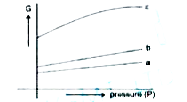The standard enthalpies of formation of H2O2(l)andH2O(l) are −187.8kJmole−1and−285.8kJmole−1 respectively. The ΔH0 for the decomposition of one mole of H2O2(l) toH2O(l)andO2(g) isSolution in Telugu
−473.6kJmol−1
−98.9kJmol−1
+473.6kJmol−1
+187.8kJmol−1
The correct Answer is:B
Step by step video, text & image solution for The standard enthalpies of formation of H_(2)O_(2(l)) and H_(2)O_((l)) are -187.8kJ "mole"^(-1) and -285.8 kJ "mole"^(-1) respectively. The DeltaH^(0) for the decomposition of one mole of H_(2)O_(2(l)) " to" H_(2)O_((l)) and O_(2(g)) is by Chemistry experts to help you in doubts & scoring excellent marks in Class 12 exams.
Updated on:21/07/2023Topper's Solved these Questions
- CHEMICAL THERMODYNAMICSBook:AAKASH SERIESChapter:CHEMICAL THERMODYNAMICSExercise:Practice Sheet- Exercise-III
Explore 30 Videos
- CHEMICAL THERMODYNAMICSBook:AAKASH SERIESChapter:CHEMICAL THERMODYNAMICSExercise:Practice Sheet- Exercise-IV
Explore 20 Videos
- CHEMICAL THERMODYNAMICSBook:AAKASH SERIESChapter:CHEMICAL THERMODYNAMICSExercise:Practice Sheet-Exercise-I
Explore 33 Videos
- CHEMICAL KINETICSBook:AAKASH SERIESChapter:CHEMICAL KINETICSExercise:Objective Exercise - 4 (Assertion (A) & Reason (R) Type Questions)
Explore 44 Videos
- CHEMISTRY IN EVERY DAY LIFEBook:AAKASH SERIESChapter:CHEMISTRY IN EVERY DAY LIFEExercise:PRACTICE EXERCISE
Explore 29 Videos
Similar Questions
The following curve represents the variation of Gibbs function 'G' with pressure at constant temperature. Correct match of given plots with the physical state of a substance is

View SolutionFor a perfectly crystalline solid Cp.m=aT3, where a is constant. If Cp.m is 0.42 J/K − mol at 10K, molar entropy at 10K is
View SolutionWhich of the following diagram correctly represents the variation of internal energy (U) of gas under expansion at constant temperature.
View Solution(A) Spontaneous reaction may be slow or fast.
(R ) Spontaneous nature deals with feasibility of the reaction but not rate.
View SolutionAnti allergy drugs are
View SolutionSelect the incorrect statements for the equillibrium under standard condition: H_(2)O_((s))hArrH_(2)O_((l)), DeltaS_(1)^(@) H_(2)O_((l))hArrH_(2)O_((v)), DeltaS_(2)^(@) H_(2)O_((l))hArrH_(2)O_((v)), DeltaS_(3)^(@)
View SolutionThe standard molar enthalpies of formation of H2O(l) and H2O2(l) are -286 and -188 "kJ"//"mol", respectively. Molar enthalpies of vaporisation of H2O(l) and H2O2(l) are 44 and 53 kJ respectively. The bond dissociation enthalpy of O2(g) is 498kJ/mol. calculate the bond dissociation enthalphy (inkJ/mol) of O−O bond in H2O2, assuming that the bond dissociation ethalpy of O−H bond is same in both H2 and H2O2.
View SolutionAt 25∘C the heat of formation of H2O(l) is −285.9 kJ mole−1 and that for H2O(g) is −242.8 kJ mole−1. The heat of vaporization of water at the same temperature is
View SolutionThe heat of formation of H_(2)O_((l)) is -286.2 kJ. The heat of formation of H_(2)O_((g)) is likely to be
View SolutionDecomposition of H_(2)O_(2) is retarded by : 2H_(2)O_(2)(l) rarr 2H_(2)O(l)+O_(2)(g)
View SolutionThe enthalpy of the reaction : H_(2)O_(2)(l)toH_(2)O(l)+(1)/(2)O_(2)(g) is -23.5 kcal mol^(-1) and the enthalpy of formation of H_(2)O(l) is -68.3 kcal mol^(-1) . The enthalpy of formation of H_(2)O_(2)(l) is
View SolutionThe enthalpy change at 298 K of the reaction H_(2)O_(2)(l)toH_(2)O(l)+1//2O_(2)(g) is -23.5 kcal mol^(-1) and enthalpy of formation of H_(2)O_(2)(l) is -44.8 kcal mol^(-1) . The enthalpy of formation of H_(2)O(l) is
View SolutionDetermine enthalpy of formation for H_(2)O_(2)(l) , using the listed enthalpies of reactions: N_(2)H_(4)(l) + 2H_(2)O_(2)(l) rarr N_(2)(g) + 4H_(2)O(l), Delta_(r)H_(1)^(@) =-818 KJ//"mol" N_(2)H_(4)(l)+O_(2)(g) rarr N_(2)(g) + 2H_(2)O(l), Delta_(r)H_(2)^(@)=-622 KJ//"mol" H_(2)(g)+(1)/(2)O_(2)(g) rarr H_(2)O(l), Delta_(r)H_(3)^(@)=-285 KJ//"mol"
View SolutionDeltaH_(f)^(@) " for "H_(2)O_(2) and H_(2)O are -188 kJ/mole and -286 kJ/mole. What will be the enthalpy change of the reaction 2H_(2)O_(2)(l)rarr2H_(2)O(l)+O_(2)(g)
View SolutionThe enthalpy of vaporisation of liquid water using the data
H2(g)+12O2(g)→H2O(l) , ΔH=−285.77kJ/mol
H2(g)+12O2(g)→H2O(g), ΔH=−241.84kJ/mol
View Solution

